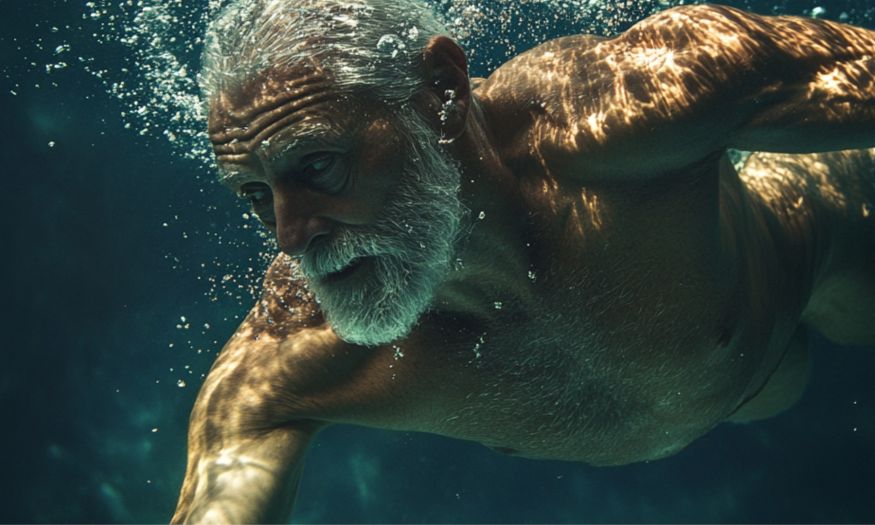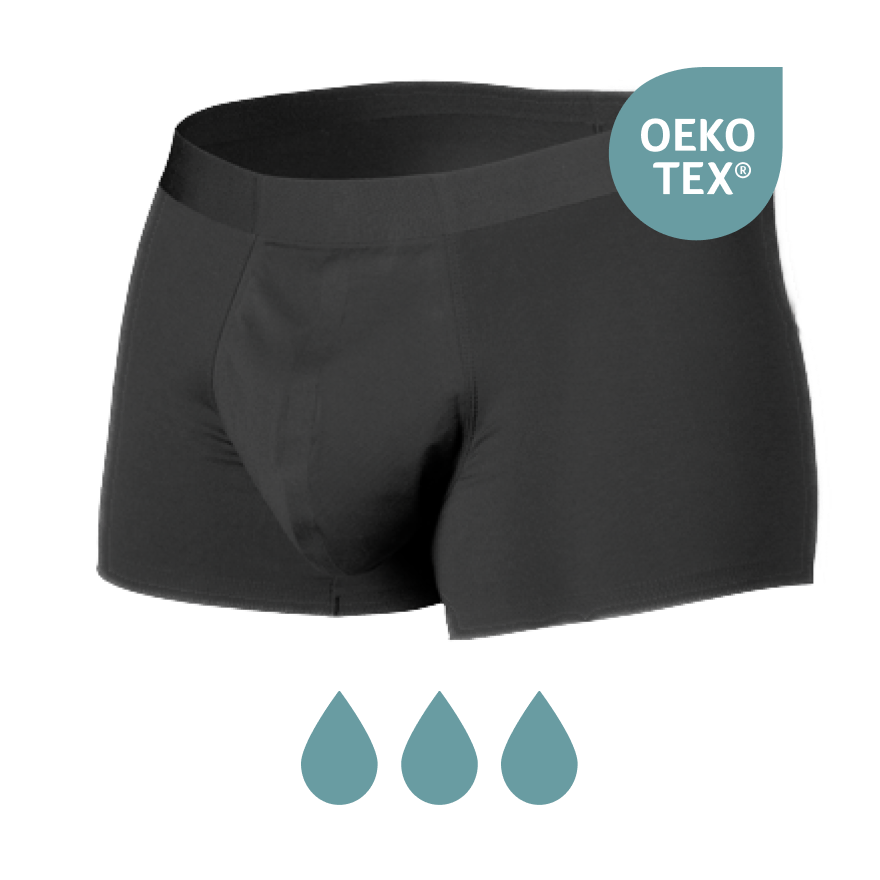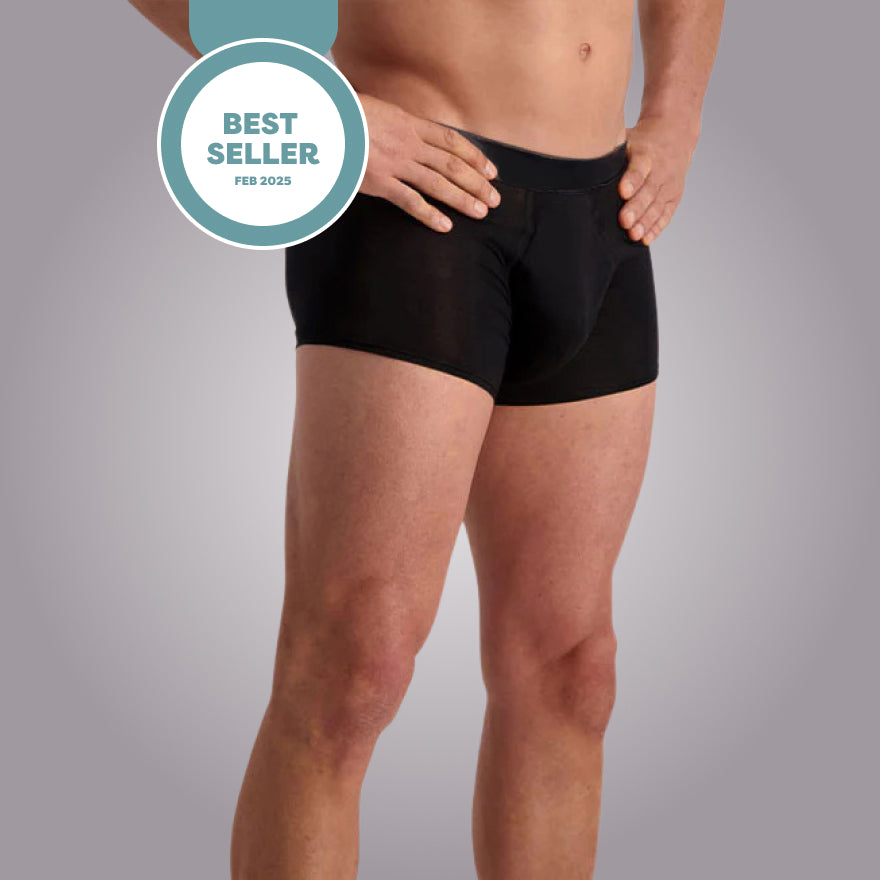If you suffer from incontinence, you may find it daunting or difficult to go swimming on the beach or in the public swimming pool. Fortunately, there are tips that you can try to feel much more comfortable and confident.
Summer is a wonderful time of the year. Most people go to the nearest beach, swimming pool or water park during the warmer months to cool down and have fun with family and friends.
For people with incontinence, these experiences can unfortunately cause a lot of stress and fear. There can be various reasons for that, such as the feeling that they cannot wear comfortable swimwear to hide their continency aids or the fear that they will leak in the water.
We are here to tell you that incontinence does not mean that you cannot enjoy swimming! These 4 tips to enjoy the beach or swimming pool with incontinence give you extra peace of mind and confidence to enjoy with your loved ones during the warmer months.
Don't worry about small leaks
It is important to understand that urine loss or the completely emptying of your bladder in the sea is completely harmless and that many people, even without incontinence, do this.
If you only suffer from light urine loss or drops, swimming in a swimming pool is also great. Try to empty your bladder before you jump in, because urine mixed with chlorine can cause skin irritations - in yourself and with others.
If you suffer from fierce urine loss, uncontrollable bladder garments or fecal incontinence, it is important to empty your bladder and/or intestines before you go swimming and invest in incontinentiezwemwemwem (more about this soon).
1. Prepare before you enter the water
As we just said, it is crucial that you empty your bladder and/or intestines before diving into the water.
You must also remove all incontinence aids that are not intended to swim in, such as base and protectors, pull-ups and briefs.
The reason for this is that incontinence materials absorb the water in which you swim. This is not only extremely uncomfortable for you, but can also lead to cracking or breaking the tool. The superabsorbating polymers in inserts, pull-ups and briefs can be harmful to swimming pool filters and for marine life in open oceans and waterways.
2. Invest in good quality swimwear in incontinence
Fortunately, you can buy swimwear in incontinence for both children and adults. Before you buy something, you must ensure that the swimwear you choose is suitable for your type and level of incontinence to prevent unwanted accidents on the beach or in the swimming pool. As soon as you are out of the water, we recommend that you turn off your swimwear and apply a founder or protection in your swimwear until you are ready to go into the water again. This provides extra absorption and protection.
3. Look at other incontinence tools
In addition to incontinence swimwear, there are other tools that you can wear to keep it under control while swimming.
For women there is a pessary that they insert into their vagina to put pressure on the urethra. This helps to stop the urine strap. It looks like a tampon, but the effect is very different. Although it is not suitable for everyone, it is a tool that can reduce the urine flow during the time you want to swim and it is discreet and easy to use.
Men can use a penis clamp or cuff that also stops the urine stream while swimming. Most men report that they are relatively comfortable once they are used to it, but it depends on the person's tolerance. It works by pressing the urethra so that the urine cannot escape. It is placed halfway through the length of the penis. These are designed for short -term use and must be detached every 1 - 2 hours, depending on the instructions of the manufacturer.
Both tools can have side effects if they are not used properly or too often, so always ask your doctor or continent nurse before you use them.
4. Choose your food and drink wisely!
What you eat and drink before and during your swimming or beach day can affect your incontinence symptoms.
Avoid eating and drinking that is known to annoy the bladder and intestines, such as caffeine, carbonated drinks, seasoned food, sour food (fruit, tomatoes) and alcohol.
Instead, drink water and choose snacks such as carrots, celery and berries that are softer for your bladder and intestines. Always consult with your doctor, dietician and/or icontinence nurse before you make changes to your diet. At Robin we firmly believe that you have to live your life fully. It is not because you are incontinent that you have to stop the things you love. We recognize that incontinence means that we have to plan ahead and maybe change a few things, but everything is feasible.
Enjoy the summer warmth, don't forget to slide out and make memories in the sun and the water without living in fear!
















